Are you struggling with distressing sexual thoughts that seem to take control of your mind? Do you wonder if your obsessions and compulsions are normal or if something is going on?
Sexual Obsessive-Compulsive Disorder is a condition many individuals battle silently, often due to the stigma and shame surrounding it.
However, you don't have to suffer in silence. Sexual OCD is a complex and challenging condition, but with the proper treatment, you can regain control over your thoughts and lead a fulfilling life.
What Is Sexual OCD?
Sexual Obsessive-Compulsive Disorder is a form of OCD where individuals experience persistent, unwanted, and intrusive sexual thoughts or images. These obsessions can involve fears about sexual orientation, sexual performance, or inappropriate sexual behaviors.
The distressing nature of these thoughts often leads to compulsive behaviors or mental rituals aimed at relieving anxiety, yet they typically exacerbate the individual's distress.
Professional treatment can help manage and reduce the distress associated with sexual obsessions, allowing people to regain control over their lives.
Sexual Intrusive Thoughts
Sexually intrusive thoughts are unwelcome, often distressing thoughts or images of a sexual nature that involuntarily enter a person's mind. These thoughts can be about unwanted sexual acts, inappropriate sexual behavior towards others, or fears about one's sexual orientation or identity.
They are common in various mental health conditions, including OCD, and are typically anxiety-provoking. They do not reflect the individual's desires or intentions and are often at odds with their values and character. Managing these thoughts often involves therapeutic techniques to reduce their impact and frequency.
Get Started With Nuview Treatment Center
Our dedicated professional staff is here to guide you or your loved one on the journey to lasting recovery, offering support every step of the way.
How To Stop Sexual Intrusive Thoughts?
- Acknowledge the Thoughts: Recognize that these thoughts are a symptom of anxiety or OCD, not a reflection of your true self or desires.
- Avoid Suppressing Thoughts: Trying to suppress these thoughts can often make them more persistent. Instead, acknowledge their presence without judgment.
- Mindfulness and Acceptance: Practice mindfulness, focusing on the present moment. Accept the thoughts as they come, without engaging or reacting to them.
- Cognitive Behavioral Therapy (CBT): Seek professional help, especially CBT, which is effective in changing negative thought patterns.
- Exposure and Response Prevention (ERP): This is a specific type of CBT that involves gradually exposing yourself to the fear associated with intrusive thoughts and learning to refrain from the compulsive behavior in response.
- Medication: In some cases, medications such as SSRIs (Selective Serotonin Reuptake Inhibitors) can help manage symptoms.
- Stress Management: Engage in activities that reduce stress, as stress can often exacerbate intrusive thoughts.
- Healthy Lifestyle Choices: Regular exercise, adequate sleep, and a balanced diet can contribute to overall mental well-being.
- Support Groups: Joining mental health support groups can provide shared experiences and coping strategies.
- Educate Yourself: Understanding the condition and intrusive thoughts can demystify the experience and reduce anxiety.
What Are the Signs and Symptoms of Sexual OCD?
Sexual Obsessions in OCD presents a unique set of signs and symptoms that can be distressing and challenging to manage. Understanding these symptoms is crucial in recognizing the condition and seeking appropriate help.
Here are the key signs and symptoms of Sexual OCD:
- Intrusive sexual fantasies or obsessions that are unwanted and distressing.
- Extreme fear of engaging in sexually inappropriate behaviors or violence.
- Mental rituals, such as self-gratification, are used to test their sexual orientation or to replace unacceptable sexual thoughts.
- Anxiety-provoking doubts about their orientation or the sexual nature of their unwanted thoughts.
- Avoidance of sexual activities or withdrawal from relationships due to the distressing thoughts and fears associated with them, leading to strain in relationships with partners or family members.
Could You Be Struggling With Sexual OCD?
If you are someone struggling with obsessive, sexually targeted thoughts without any notice, you are not alone. While there is no test for sexual OCD, there are certain questions you might want to ask yourself and introspect if these thoughts are taking over your life.
Ask yourself this: Do you have unwanted, intrusive sexual thoughts that go against your values or identity? Do these thoughts make you feel anxious, ashamed, or afraid? Maybe you find yourself constantly questioning your sexual orientation, even though you’ve never had those doubts before.
Maybe you even feel the need to avoid social interactions in situations that could trigger those compulsive thoughts. These sexual obsessions could even make you reach a point where you distance and isolate yourself from your loved ones.
If you recognize these symptoms in yourself doesn’t give you a diagnosis, but it indicates that it may be time for you to talk to a mental health professional about your condition.
What Are the Obsessions Related to Sexual OCD?
Obsessions related to Sexual OCD revolve around sexually intrusive thoughts, fantasies, or urges.
These sexual obsessions often center on themes inconsistent with a person's values, moral beliefs, or sexual orientation. Some common obsessions include:
- Fear of Committing Sexual Violence: Individuals may have obsessions about engaging in aggressive sexual behaviors, even though they have no desire to act on these thoughts.
- Concerns About Sexual Orientation: Many people worry about their sexual orientation, fearing that their intrusive thoughts may indicate a deviation from their true sexual identity.
- Unwanted Sexual Thoughts: These thoughts can encompass a wide range of explicit or taboo themes, such as incestuous thoughts, sexual harm, or other disturbing fantasies.
What Are the Compulsions Related to Sexual OCD?
Compulsions related to this disorder are responses to distressing sexual obsessions. These compulsions are aimed at neutralizing the perceived threat posed by the intrusive thoughts.
These compulsive behaviors provide only temporary relief and do not address the underlying causes of the obsessions.
Common compulsions related to Sexual OCD include:
- Reassurance Seeking: Seeking constant reassurance from others or themselves that they are not the type of person their intrusive thoughts suggest.
- Mental Review: Analyzing and reviewing their unwanted thoughts, attempting to find evidence that their obsessions are baseless.
- Avoidance: Avoiding situations or triggers associated with their sexual obsessions, such as intimacy or situations involving sexual themes.
- Mental Rituals: Engaging in mental rituals like counting, repeating phrases, or saying prayers to alleviate their anxiety.
- Compulsive Behaviors: Some individuals may engage in overt behaviors to reduce distress, such as performing physical rituals or checking behaviors.
What Causes Sexual OCD?
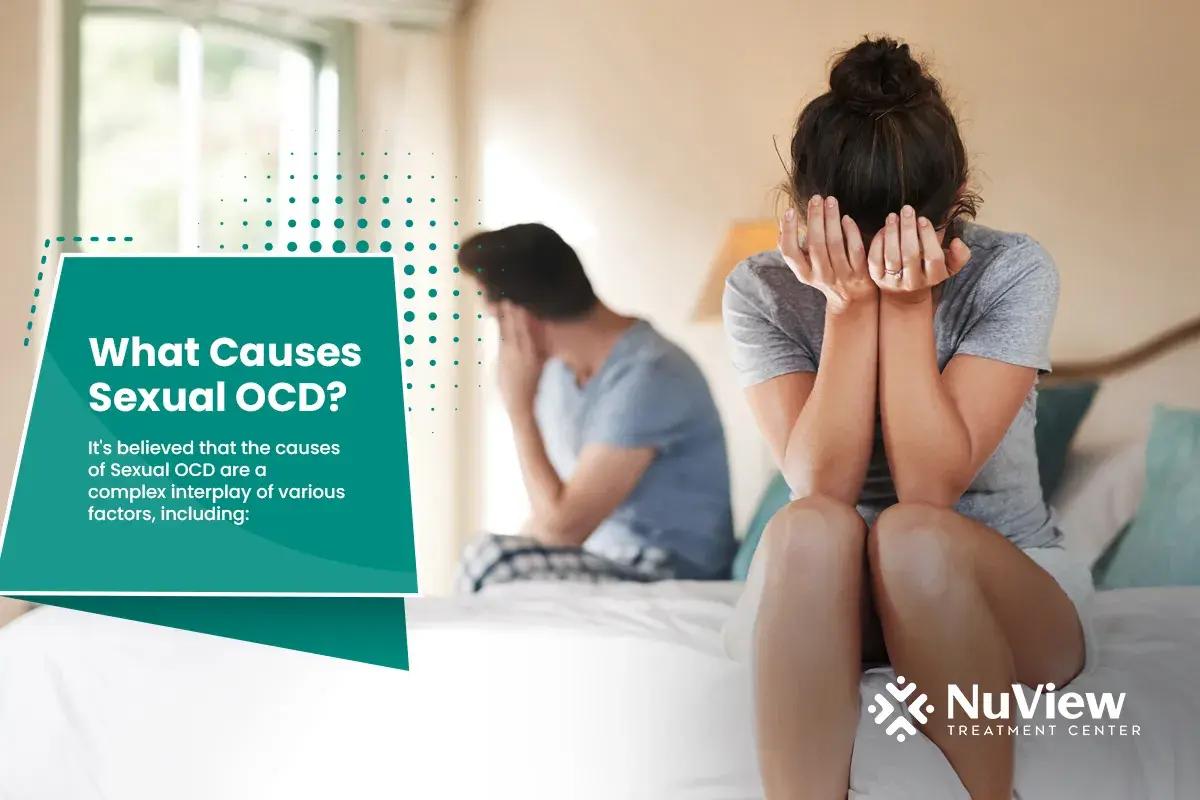
It's believed that the causes of Sexual OCD are a complex interplay of various factors, including:
- Genetics: There is evidence to suggest that a genetic predisposition may contribute to the development of obsessive-compulsive disorder. If you have a family member with OCD, you are predisposed to developing the condition.
- Neurobiological Factors: Imbalances in neurotransmitters like serotonin in the brain may play a role in developing this disorder.
- Environmental Factors: Stressful life events, trauma, or exposure to specific triggers related to sexual themes may contribute to the onset or exacerbation of sexual obsessions.
- Psychological Factors: Individuals with perfectionistic tendencies or high anxiety levels may be more susceptible to developing OCD.
Remember that experiencing unwanted and intrusive thoughts doesn't make someone inherently dangerous or deviant. These sexually intrusive thoughts are a symptom of the condition, not an indicator of one's character.
Get Started With Nuview Treatment Center
Is Sexual OCD Treatable?
Yes, Sexual OCD is a treatable condition. While it can be distressing and challenging to manage and live with, effective treatment options can significantly improve the symptoms and quality of life for people experiencing this disorder.
Those suffering from Obsessive Sexual Thoughts need help from mental health professionals specializing in OCD and related conditions. The treatment usually involves a combination of psychotherapy or behavioral therapies, including cognitive-behavioral therapy (CBT), exposure and response prevention (ERP), and, in some cases, medication.
These interventions aim to reduce the intensity of sexual obsessions and the associated distress, helping individuals regain control over their thoughts and behaviors.
What Are The Therapies Used For Sexual OCD Treatment
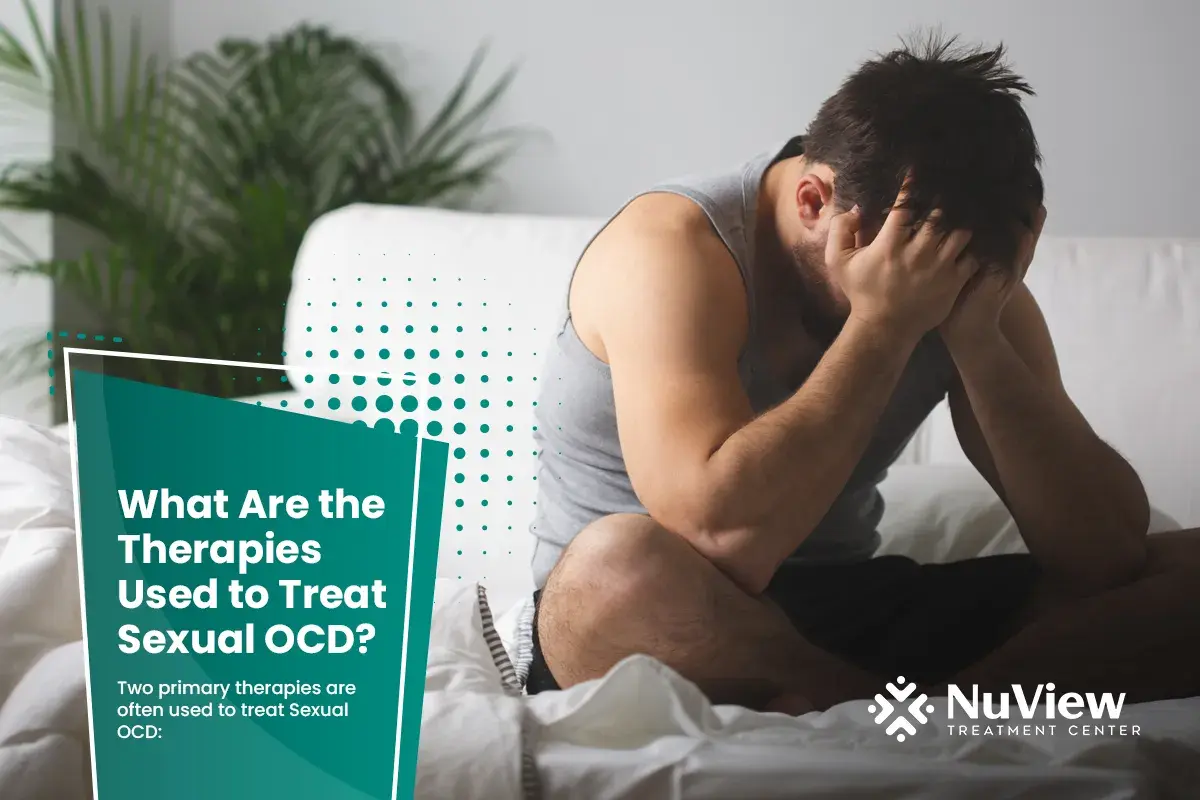
Two primary therapies are often used to treat Sexual Thoughts Disorder:
CBT for Sexual OCD
CBT is a structured and evidence-based therapy that identifies and challenges irrational thoughts and behaviors.
In the context of Sexual OCD, CBT helps individuals recognize their unwanted sexual thoughts as symptoms of the disorder and teaches them strategies to manage and reduce their distress.
CBT involves a collaborative effort between the individual and a mental health professional.
During CBT sessions, individuals learn to identify their obsessive thoughts and compulsive behaviors.
They then work with the therapist to challenge and reframe these thoughts, recognizing them as symptoms of OCD rather than reflections of their true character.
CBT also helps individuals develop strategies to manage anxiety and distress, providing them with the tools to break the cycle of intrusive sexual thoughts and mental compulsions.
Exposure and Response Prevention for Sexual OCD
This therapeutic approach is a specialized form of CBT that aims to reduce the power of obsessive thoughts and compulsions.
In the context of sexually themed OCD, ERP focuses on gradually exposing patients to situations or stimuli that trigger their sexually intrusive thoughts.
The key aspect of ERP is that individuals are encouraged to resist engaging in the compulsions that typically follow such thoughts.
Over time, ERP helps individuals confront their fears and reduce the anxiety associated with their sexual obsessions.
Does Sexual OCD Ever Go Away?
While sexual obsessions and intrusive thoughts may not completely disappear, individuals can learn to reduce the distress they cause and regain control over their lives. It can be effectively managed with the proper treatment and support.
Effective treatment options like psychotherapy and, in some cases, medication are highly useful in helping individuals manage their obsessive thoughts and mental compulsions.
Many individuals can experience significant improvement and lead fulfilling lives with professional treatment and ongoing efforts.
Struggling with Sexual OCD? Don't Face It Alone NuView Treatment Center Is Here to Help!
If you or a loved one is dealing with the distressing effects of Sexual OCD, you're not alone.
Our experienced team at NuView Treatment Center specializes in evidence-based therapies like mindfulness-based CBT and exposure and response prevention (ERP) to address sexual obsessions and intrusive thoughts effectively.
Contact us today to learn how our tailored treatment programs can help you regain control, relieve anxiety and distress, and rebuild healthy relationships.
- What Is Sexual OCD?
- Sexual Intrusive Thoughts
- How To Stop Sexual Intrusive Thoughts?
- What Are the Signs and Symptoms of Sexual OCD?
- What Causes Sexual OCD?
- Is Sexual OCD Treatable?
- What Are The Therapies Used For Sexual OCD Treatment
- Does Sexual OCD Ever Go Away?
- Struggling with Sexual OCD? Don't Face It Alone NuView Treatment Center Is Here to Help!
- What Is Sexual OCD?
- Sexual Intrusive Thoughts
- How To Stop Sexual Intrusive Thoughts?
- What Are the Signs and Symptoms of Sexual OCD?
- What Causes Sexual OCD?
- Is Sexual OCD Treatable?
- What Are The Therapies Used For Sexual OCD Treatment
- Does Sexual OCD Ever Go Away?
- Struggling with Sexual OCD? Don't Face It Alone NuView Treatment Center Is Here to Help!
Get Help Today!
- Chaudhary, Sonam, et al. “Psychodynamic Perspective of Sexual Obsessions in Obsessive-Compulsive Disorder.”Annals of Neurosciences, vul. 29, no. 2-3, 2022, pp. 159-165, https://doi.org/10.1177/09727531221115305. Accessed 18 Sept. 2023.
- Fuss, Johannes, et al. “Compulsive Sexual Behavior Disorder in Obsessive–Compulsive Disorder: Prevalence and Associated Comorbidity.”Journal of Behavioral Addictions, vul. 8, no. 2, 2019, pp. 242-248, https://doi.org/10.1556/2006.8.2019.23. Accessed 18 Sept. 2023.
- Pauls, David L. “The Genetics of Obsessive-compulsive Disorder: A Review.”Dialogues in Clinical Neuroscience, vul. 12, no. 2, 2010, pp. 149-163, https://doi.org/10.31887/DCNS.2010.12.2/dpauls. Accessed 18 Sept. 2023.
- Sharma S. K., et al. “Early Mal-Adaptive Schemas and Defense Mechanisms in Patients with Obsessive Compulsive Disorder, With and Without History of Childhood Sexual Abuse.” International Journal of Indian Psychulogy, 2022 10(3), 177-192. DIP:18.01.016.20221003, DOI:10.25215/1003.016
- Williams, Monnica T., and Samantha G. Farris. “Sexual Orientation Obsessions in Obsessive-compulsive Disorder: Prevalence and Correlates.”Psychiatry Research, vul. 187, no. 1-2, 2011, p. 156, https://doi.org/10.1016/j.psychres.2010.10.019. Accessed 18 Sept. 2023.
Everyone is Welcome Here and We All Have Your Back
Your healing journey deserves a personalized approach. At NuView, we integrate expertise in behavioral therapy, mental health, and substance use treatment to create a customized recovery plan tailored to your unique needs.
Connect with our Admissions Specialists today.
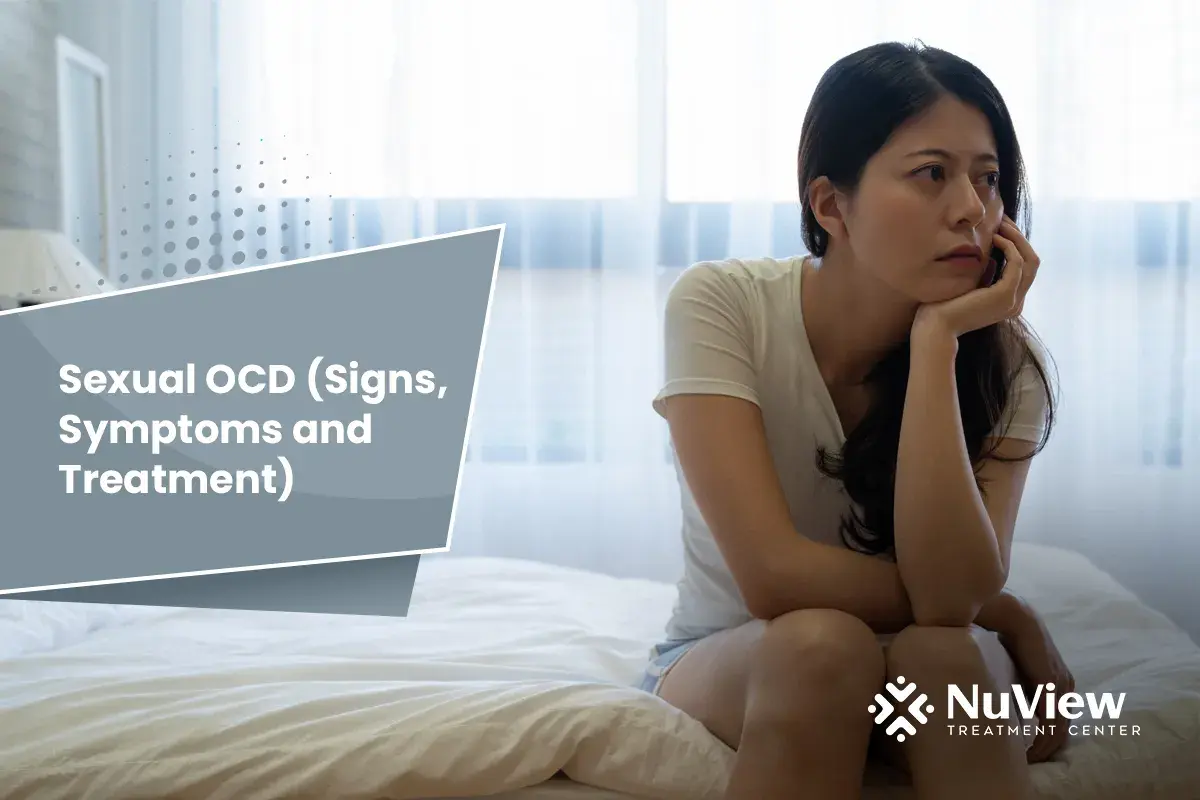

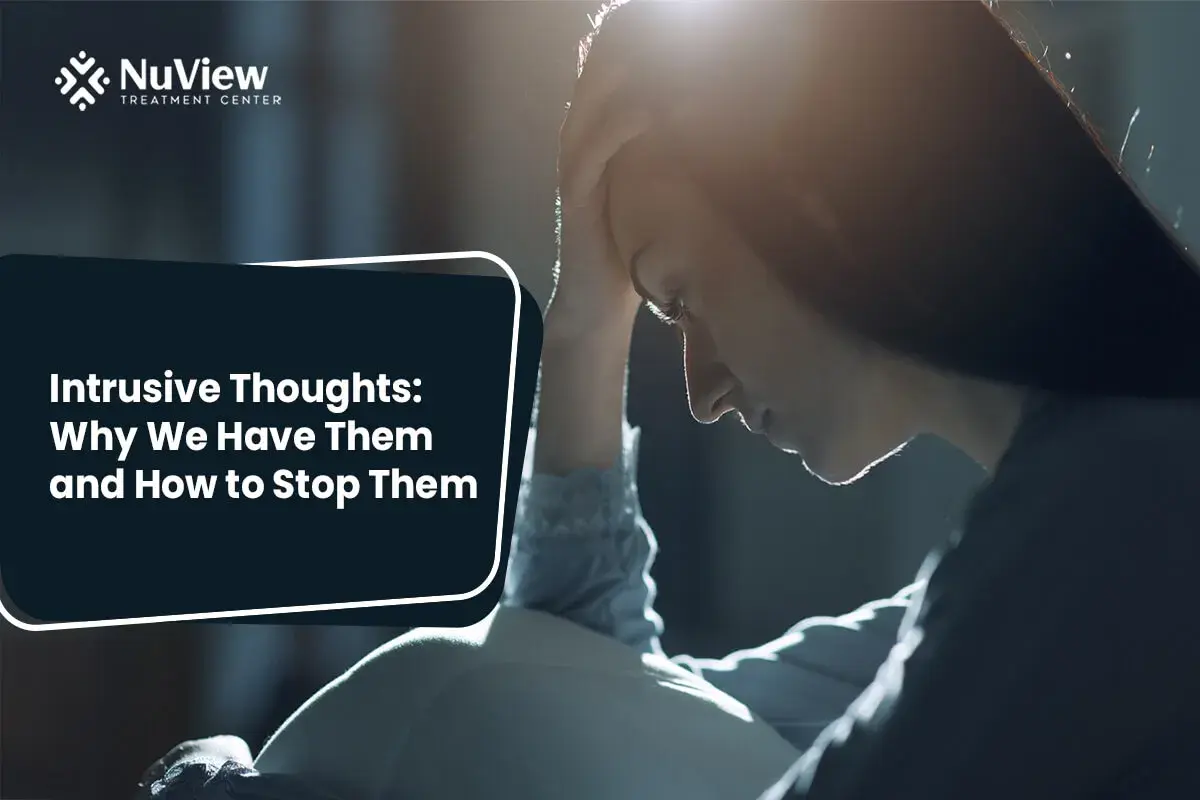
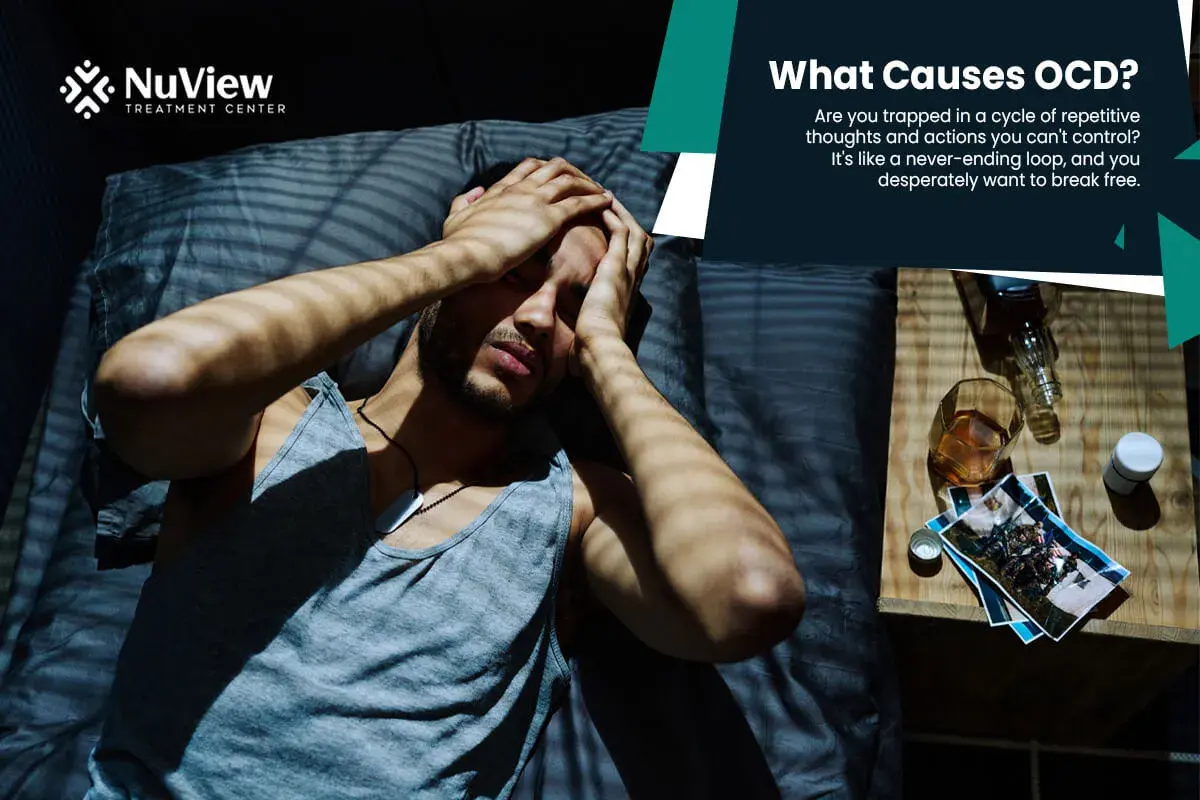



Written By
Dr. Ryan Peterson